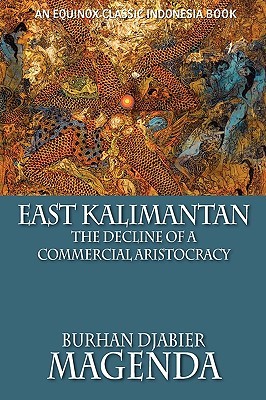
- We will send in 10–14 business days.
- Author: Burhan Djabier Magenda
- Publisher: Equinox Publishing (Indonesia)
- Year: 2010
- Pages: 164
- ISBN-10: 6028397210
- ISBN-13: 9786028397216
- Format: 15.2 x 22.9 x 1 cm, minkšti viršeliai
- Language: English
- SAVE -10% with code: EXTRA
Reviews
Description
In recent studies of Indonesia's regional politics one important aspect has largely been neglected - the role of the local aristocracies which dominated many of the regions outside Java from the precolonial period through to the formation of the independent Republic of Indonesia in 1949. In his work Burhan Magenda has begun to remedy this neglect. He has studied the aristocracies in various regions of the Outer Islands from the colonial period through into the New Order government of President Suharto. In covering their history he has examined the strategies used by the local aristocrats to survive and attempt to continue their domination of political power in their regions.
The focus of this present monograph is East Kalimantan, where the local aristocracy was commercial in nature, tracing its origin back to the establishment of a "spice trade" route in the sixteenth century. The decline in the nineteenth century of the main harbor principality of Borneo, Banjarmasin on the south coast, opened the way for other states on the island to play a greater role, in particular the sultanate of Kutai in eastern Borneo.
Burhan Magenda's well documented study opens a new perspective of fundamental importance to our understanding of both the past and current political and economic development of East Kalimantan and of its relationship with the central power in Jakarta. It provides an illuminating analysis of strategies by which members of the aristocracy have succeeded in surviving under widely varying conditions. Clearly, despite the challenges they have encountered over the past 45 years, these aristocrats have shown a surprising political resilience. - Audrey Kahin Ithaca, August 1991
EXTRA 10 % discount with code: EXTRA
The promotion ends in 22d.19:24:09
The discount code is valid when purchasing from 10 €. Discounts do not stack.
- Author: Burhan Djabier Magenda
- Publisher: Equinox Publishing (Indonesia)
- Year: 2010
- Pages: 164
- ISBN-10: 6028397210
- ISBN-13: 9786028397216
- Format: 15.2 x 22.9 x 1 cm, minkšti viršeliai
- Language: English English
In recent studies of Indonesia's regional politics one important aspect has largely been neglected - the role of the local aristocracies which dominated many of the regions outside Java from the precolonial period through to the formation of the independent Republic of Indonesia in 1949. In his work Burhan Magenda has begun to remedy this neglect. He has studied the aristocracies in various regions of the Outer Islands from the colonial period through into the New Order government of President Suharto. In covering their history he has examined the strategies used by the local aristocrats to survive and attempt to continue their domination of political power in their regions.
The focus of this present monograph is East Kalimantan, where the local aristocracy was commercial in nature, tracing its origin back to the establishment of a "spice trade" route in the sixteenth century. The decline in the nineteenth century of the main harbor principality of Borneo, Banjarmasin on the south coast, opened the way for other states on the island to play a greater role, in particular the sultanate of Kutai in eastern Borneo.
Burhan Magenda's well documented study opens a new perspective of fundamental importance to our understanding of both the past and current political and economic development of East Kalimantan and of its relationship with the central power in Jakarta. It provides an illuminating analysis of strategies by which members of the aristocracy have succeeded in surviving under widely varying conditions. Clearly, despite the challenges they have encountered over the past 45 years, these aristocrats have shown a surprising political resilience. - Audrey Kahin Ithaca, August 1991


Reviews